Toucans, toucanets & aracaris
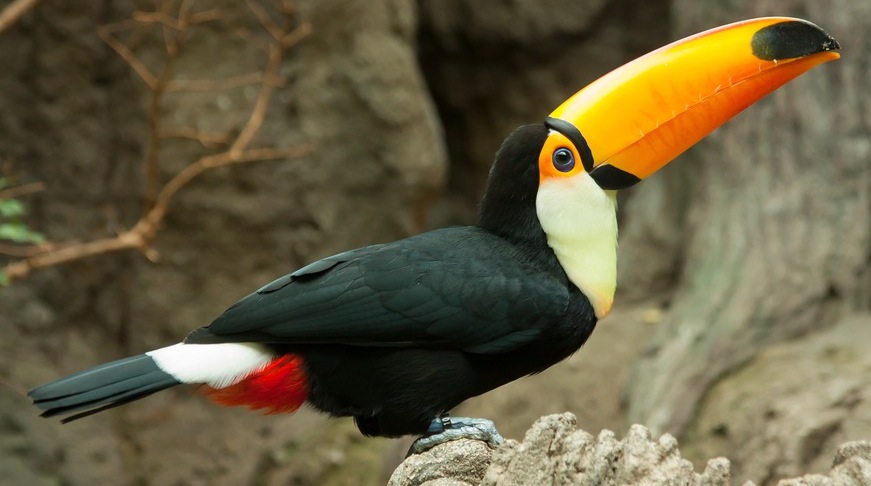
Confined to parts of Central and South America, toucans as a group also include the aracaris, with smallest Blue-throated toucanetmembers of the group being known as toucanets. Their plumage tends to be green, as seen here. While the larger members of the family, such as the well-known Toco (Ramphastos toco) are often seen in bird gardens, there have been an increasing number of breedings of these birds in private collections over recent years, particular in North America.
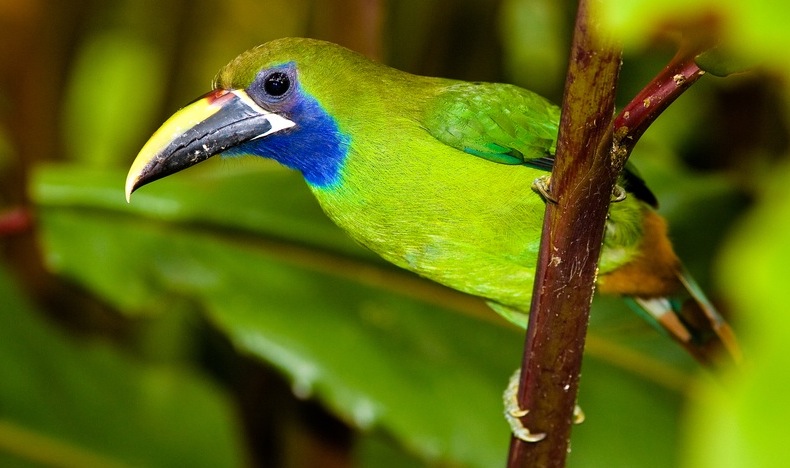
Housing
Active by nature, all members of the toucan family will benefit from being kept in a relatively large aviary. This must include a shelter where they can retreat if they feel threatened, because they are rather nervous birds by nature. Perches must be positioned so they can turn round easily, with no risk of damaging their long bills. These are surprisingly light in texture. Relatively hardy once acclimatised, these birds still need adequate winter-time protection.
Feeding preferences
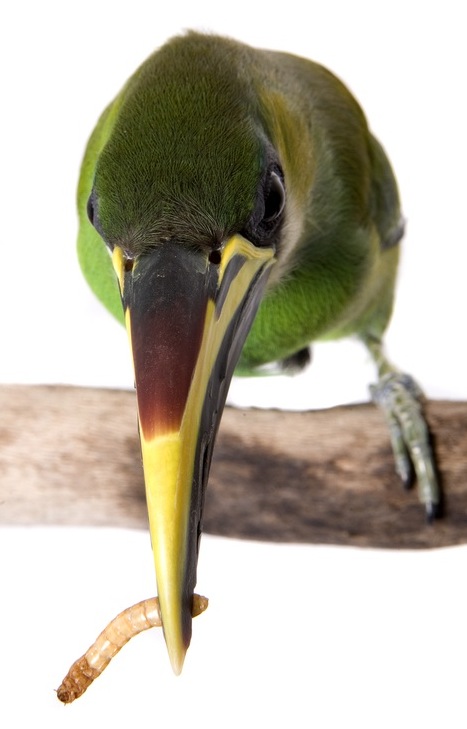
A mixture of fruit, invertebrates and even pinkies (young mice sold primarily as reptile food) will be needed. The size of their bills means that eating is a two stage process.
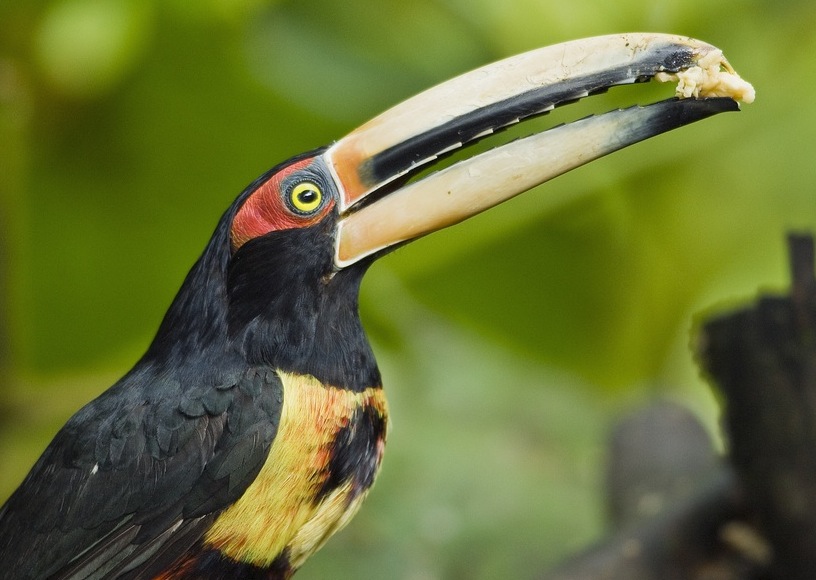
Pieces of food must be large enough to be picked up in the bill, after which they are tossed in the air and swallowed directly. Fruit such as apple should be diced into small chunks, while grapes can be offered whole. The choice of softbill food is vital to the long-term health of these birds. It must be a low iron food, to guard against the effects of iron storage disease.
Breeding
Toucans breed in tree holes. In some cases, it can be possible to determine pairs are hens are often smaller, with smaller bills, but reliable sexing is recommended. Some cock toucans can become very aggressive at the start of the breeding period, and may persecute their mates. In the case of aracaris however, they may nest collectively, with the young being fed by other members of the group.
Sociability
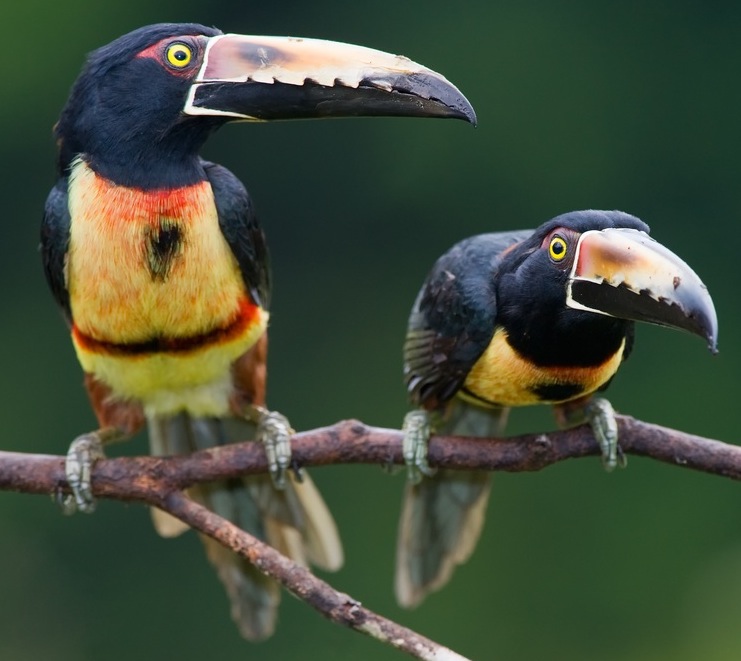
Never to be trusted with smaller companions, which they may prey on, toucans are also likely to steal eggs and chicks of bigger species too. Pairs should be kept on their own, although aracaris may live together in a group in a large aviary without fighting.
Health watch
Iron storage disease is a serious and ultimately fatal disorder. An affected bird will develop a swollen abdomen, and has difficulty in flying. It may spend longer at the food bowl, with its feathers ruffled.
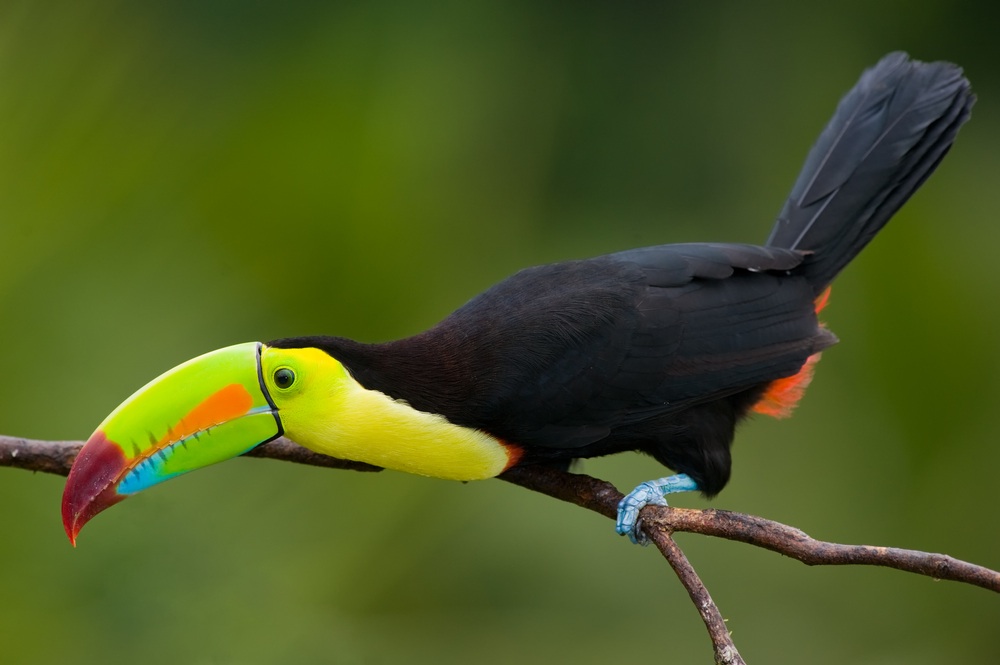
Good to start with: Banded aracari (Pteroglossus torquatus)
Clutch size: 2-4 eggs.
Incubation and fledging periods: 16-19 days and around 45-50 days.
Enthusiast’s guide
Toucans, Barbets and Honeyguides : Ramphastidae, Capitonidae and Indicatoridae by Lester Short and Jennifer Horne, Oxford University Press.